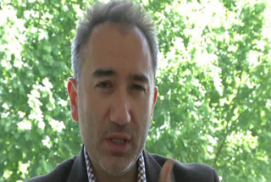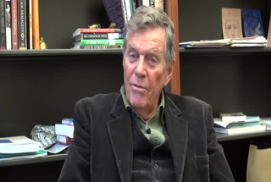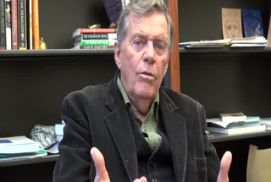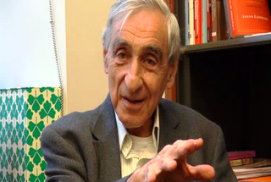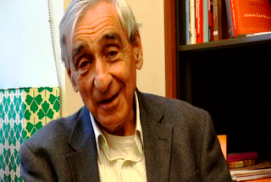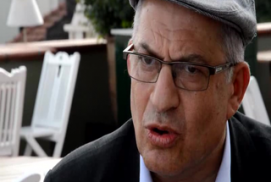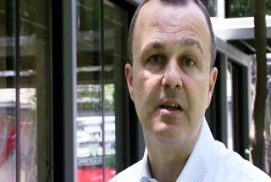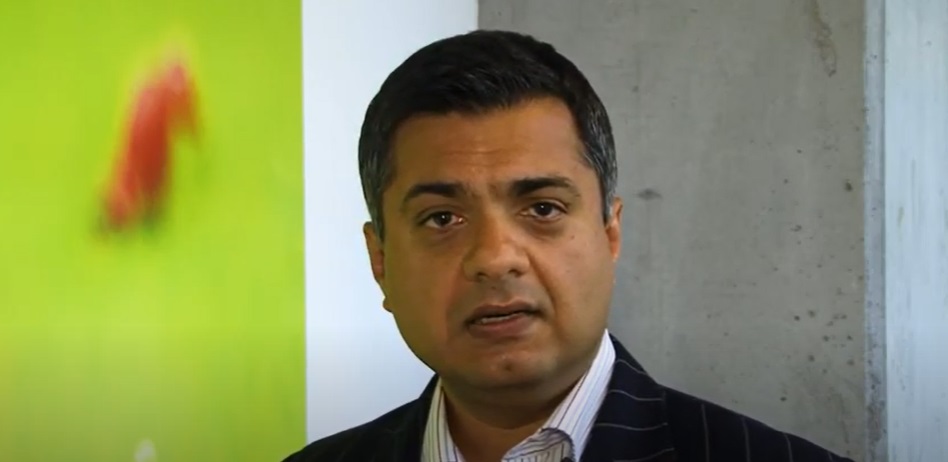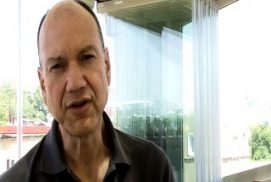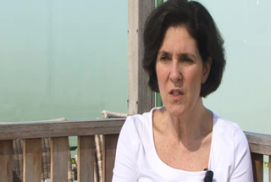
Videos

- Mustafa Akyol 23 January 2015“Is Turkey trapped in the cyclical history of Ibn Khaldoun, the medieval thinker who said that new elites conquer, change things, but gradually imitate the old elites? After the Kemalist oppression came a phase of liberalization by the AKP. Now, a new (religious) ideal society might be, once more, imposed with power.” Mustafa Akyol, a Turkish writer and the author of Islam Without Extremes: A Muslim Case for Liberty, warns of the danger of authoritarianism in the name of religion in an interview from the Istanbul Seminars 2014. Watch Part 2: “About the Gezi Movement” – Watch Part 3: “Pluralism and Liberal Democracy”
- Alfred Stepan 14 July 2014“In the very strict sense, explains Professor Alfred Stepan from Columbia University, there is not one democracy in the world that has strict separation between Church and state. For example, 100% of the 27 members of the European Union give money for religious education, one third of them have established churches.
- Alfred Stepan 14 July 2014“What does democracy need and require from religious institutions and people? And, on the other side, what is the minimum religious people can legitimately expect from democracy?” asks Professor Alfred Stepan from Columbia University.
- 30 June 2014Michael Walzer, from Princeton’s Institute for Advanced Study, explains why cultural pluralism and the congregational model have helped integration and accommodation of religious differences in the USA. Italian or Irish Christians, Jews or Black Baptists are those who have built institutions, hospitals and who join in culture. Professor Walzer explains that according to sociologists “that process has begun with American Islam. That is the ‘protestantization’ of the mosque, or the turning of the mosque into an American congregation, with the men’s club, the ladies auxiliary and all the paraphernalia of an American protestant congregation. That hasn’t happened in Europe. The congregational model – even if each one has his own adaptation of that model – has been enormously helpful in the accommodation of religious difference in the United States and I think that is perhaps the biggest reason why Islam in America is very different from Islam in Europe.” Watch Part 1 of this video
- 30 June 2014Michael Walzer, Professor Emeritus at Princeton’s Institute for Advanced Study, explains why anti-immigrant populism is more a European problem than an American one. “There is one decisive moment in American history – he says – which is not much written about, but which is very important and it sets up a contrast with Europe. That moment is the moment when the Anglo-American settlers, who thought that they were establishing an Anglo-American State, allowed themselves to become a minority in what they thought was their country. That happened in the course of the Nineteenth century, with a lot of resistance, resentment, nativist movements, hostility to immigrants, but it happened. And, instead of America becoming an Anglo-American nation-state, America became what Horace Kallen called ‘nation of nationalities’ without a majority nation and with an ongoing immigration. That moment is not going to be repeated in Europe.”Watch Part 2 of this video
- 6 June 2014Amnon Raz-Krakotzkin, professor of Jewish History at Ben-Gurion University of the Negev, states that “both Palestinians and Jews have one thing in common: Exile and need of recognition.” Can we define the Israeli collective rights starting from the recognition of Palestinian national rights? We interviewed Professor Raz-Krakotzkin during our Istanbul Seminars 2013.
- 2 May 2014“With my colleague Cemil Boyraz we conducted a research on the Alevis in Turkey. One interesting result is that the opening with good intentions by the state, lead to great unity among the Alevi groups, but at the same time it lead to some disillusionment and disaffection among the Alevis considering the state, because their suspicions were reinforced,” explains Murat Borovali, Vice Rector of Istanbul’s Bilgi University. “They were not trusting the government’s motives initially anyway and for some their suspicions have just been reinforced. In that sense the opening itself may have even lead to a greater divide between the Alevis and the state, rather than to a rapprochement. Secondly, what we have seen is that the Alevis desire a platform to meet their needs, which is roughly a democratic constitutional measure and which – not only on paper but in practice also – offers and implements equal citizenship, equal religious rights and religious freedoms for all.” We interviewed Prof. Borovali during our Istanbul Seminars 2013.
- 23 April 2014“The problem with the notion of dialogue when thinking about global forms of Muslim militancy is that there appears to be no integrity, either on one side or indeed on the other”, explains historian Faisal Devji from Oxford University. “When you think about people like the brothers Tsarnaev in Boston, you have figures who are completely American and Americanized. It is impossible to think about them as somehow belonging to a closed ideological world of their own. Indeed, you can look at their violence entirely within the context of American forms of teenage or young-male violence, which includes school shootings or other forms of great damage. So how do they in fact differ from something, from a form of violence that is actually quite intimate to the United States?”. We interviewed Professor Devji during our Istanbul Seminars 2014.
- 16 April 2014“If you look at the broader region of the Middle East, what you observe is a large number of wars. Right now, a war is going on in Syria, another civil war is going on in Afghanistan, there is conflict in Libya, before that there was Iraq and Iraq is not finished yet, there was Lebanon…It looks like the region of the Middle East suffers from many different civil wars, suffers from a lot violent conflicts. Why does the wider MENA region continue generating wars, while armed conflicts declined worldwide after the Cold War?” asks political scientist Stathis Kalyvas, Arnold Wolfers Professor of Political Science & Director, Program on Order, Conflict and Violence at Yale University. The reasons are “international interests, transnational revolutionary factors and parochial, local divisions, but also stronger counterhegemonic ideologies which keep the conflicts going.” We interviewed Professor Kalyvas during our Istanbul Seminars 2013.
- Karen Barkey 8 April 2014“I think this is an incredibly important moment to think and to talk about the history of the Ottoman Empire, and that is why I am making an effort to put it out there.” Explains sociologist and historian Karen Barkey, a Professor at the Columbia University in New York and director of Columbia’s Institute for Religion Culture and Public Life. “We are living, in the Middle East, through a transition towards new democratic societies that is coming at the same time as the rise of Islamism and new Islamic political parties, so that the transitions are happening when the people are rethinking the role of Islam within the context of democracy. They are also looking at their past and at all the traditional ways of thinking about Islam and how to use it in modern, contemporary societies. Therefore, they are looking for usable pasts. I think that the Ottoman Empire is a really interesting usable past, because – even though it was explained and historically described as an Islamic empire – it was really an empire where religion was very much balanced within a lot of dualities that made it possible for it not to be hegemonic.” We interviewed Karen barkey during our Istanbul Seminars 2013.


